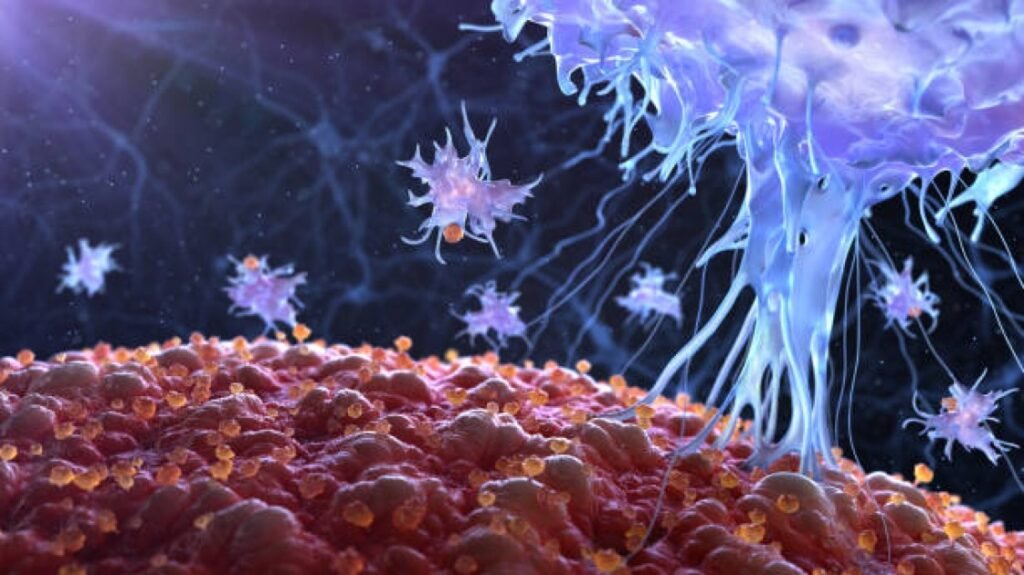Rest is often seen as a simple biological function, but it has significant effects on human health, including cognitive function and immune resilience. Despite its importance, millions of people unknowingly expose themselves to hidden dangers during sleep.
Dr. Matthew Walker, a renowned neuroscientist and sleep expert, asserts that poor sleep leads to shorter lifespans, accelerated aging, weakening disease resistance, and impaired memory consolidation, often unnoticed until irreversible damage occurs.
Seventy million Americans suffer from conditions disrupting nocturnal recovery, affecting physical and mental performance. The modern world, including digital stimulation, environmental pollutants, and artificial lighting, actively hinders natural restoration, causing fragmented or low-quality rest.
Elite performance elites prioritize optimizing rest to gain a competitive edge. Harvard Medical School researchers confirm deep restorative cycles enhance neuroplasticity, enabling complex information processing, memory recall, and emotional stability. This strategy is crucial for athletes, CEOs, and neuroscientists.
Inadequate recovery can lead to cognitive decline, inflammation, weight gain, and chronic illnesses due to insufficient immune function, cardiovascular health, and metabolic balance.
The good news is that these risks are not irreversible, and cutting-edge solutions can transform rejuvenation by integrating smart lifestyle choices and sleep-enhancing tools, thereby reducing hidden dangers and boosting vitality.
In summary, this review identifies five potential threats to restorative rest, provides expert-backed strategies, and offers product recommendations to enhance health, addressing issues like disrupted cycles, fatigue, and performance enhancement.
The 5 Hidden Dangers of Poor Sleep
Inadequate rest is a common health risk, with severe long-term effects on immunity, cognitive function, cardiovascular health, and longevity. Researchers are exploring strategies to mitigate these risks and understand the importance of adequate rest for overall well-being.

Compromised Immune Function: A Gateway to Chronic Illness
Sleep is crucial for a functioning immune system, as it helps generate defense mechanisms against infections without adequate restorative phases.
How Insufficient Rest Weakens Your Immune Response
The human body requires deep rest for cytokines, crucial for immune signaling, and insufficient rest increases the risk of viral infections, according to studies from The National Institutes of Health.
The Inflammation Problem: Why Recovery is Delayed
Chronic inflammation, triggered by stress from insufficient rest, leads to cortisol release, resulting in immune suppression, increasing susceptibility to autoimmune disorders and cancer.
How to Strengthen Your Immunity Overnight
- Maintain a consistent bedtime routine to regulate circadian rhythms.
- Use Smart Sleep Trackers to optimize recovery phases.
- Supplement with High-Quality Melatonin to promote deep rest naturally.
- Limit evening exposure to blue light, which disrupts melatonin production.

Metabolic Disruptions: The Silent Trigger Behind Weight Gain
Restorative phases are crucial in regulating hormones responsible for hunger and metabolism, preventing the body from transitioning into fat-storage mode without them.
How Inadequate Rest Alters Hunger Hormones
Inadequate rest increases ghrelin levels by 28% and reduces leptin by 18%, leading to increased cravings for calorie-dense foods, according to studies from The American Journal of Clinical Nutrition.
Insulin Resistance and Fat Accumulation
Insufficient restorative phases can hinder insulin sensitivity, causing cells to struggle with glucose processing, leading to increased fat storage and increased metabolic syndrome risk.
Using Rest as a Weight Management Tool
- Consider Weighted Blankets to improve restorative phases.
- Avoid caffeine and energy drinks at least 6 hours before bed.
- Engage in controlled fasting, allowing at least 12 hours between your last meal and the next morning’s meal.

Cardiovascular Risks: The Silent Threat to Heart Health
Heart rate variability (HRV) is a crucial indicator of cardiovascular health, and disrupted rhythms due to insufficient rest can lead to hypertension, arrhythmias, and stroke.
The Link Between Rest and Blood Pressure Regulation
Deep rest boosts nitric oxide production, easing blood vessel relaxation and blood pressure regulation. Chronically disrupted sleep cycles increase the risk of heart disease by 48%, according to The American Heart Association.
Sleep Apnea: The Hidden Cardiac Risk
Obstructive apnea decreases oxygen levels, causing the heart to work harder, increasing arterial stiffness and increasing cholesterol levels over time.
Practical Strategies to Protect Your Heart
- Invest in a Smart Mattress to enhance postural alignment.
- Monitor oxygen levels with a Wearable Health Tracker.
- Adopt a breathing routine (such as box breathing) to improve vagal tone.

Cognitive Decline: A Path to Memory Loss and Mental Fatigue
The brain’s deep sleep process is crucial for detoxification, but interruption can lead to the accumulation of harmful neurotoxins, accelerating cognitive decline.
How Insufficient Rest Affects Brain Health
The glymphatic system, crucial for clearing amyloid-beta plaques during deep restorative phases, prevents their accumulation, thereby increasing the risk of neurodegenerative conditions like Alzheimer’s.
The Psychological Toll: Anxiety, Depression, and Mood Disorders
Inadequate rest can cause memory loss, increased amygdala activity, and emotional reactivity, as per a 2023 study revealing that disrupted sleep can increase cortisol levels by 35%.
Cognitive Performance Hacks
- Use Noise-Canceling Headphones to eliminate disruptive sounds.
- Supplement with Nootropic Blends to enhance focus and clarity.
- Follow a consistent wind-down ritual to activate the parasympathetic nervous system.

Premature Aging: How Inadequate Rest Accelerates Biological Aging
Deep sleep is crucial for our skin and internal organs to maintain a regenerative cycle, which can be disrupted, leading to premature aging.
Collagen Breakdown and Wrinkle Formation
Deep sleep is crucial to producing human growth hormone (HGH), which aids tissue repair, preventing skin elasticity loss and accelerating the formation of wrinkles.
The Impact on Longevity: Cellular Aging and DNA Damage
Telomeres, protective caps at chromosome end, shorten more rapidly when rest is insufficient, linked to aging-related diseases like osteoporosis and cardiovascular decline.
Reversing the Aging Process Naturally
- Invest in Anti-Aging Sleep Masks infused with copper peptides.
- Use Silk Pillowcases to minimize skin friction and prevent fine lines.
- Follow a circadian fasting regimen to enhance cellular repair.
Final Thoughts
Rest disruptions can lead to negative health effects like cognitive impairment and chronic disease. Strategic interventions like optimizing the environment, regulating circadian rhythms, and using recovery tools can mitigate these risks.
Smart Sleep Devices and a structured nighttime routine can significantly enhance health outcomes for individuals seeking advanced solutions.
Hidden Sleep Killers: Surprising Factors That Sabotage Your Rest
Unusual disruptors can hinder restorative sleep, negatively impacting cognitive function, metabolic health, and overall well-being. This article explores these threats and offers expert-backed strategies to mitigate their effects.
Blue Light Exposure: The Invisible Disruptor
Digital devices’ increased reliance on blue light has disrupted nighttime rejuvenation by inhibiting melatonin production, a crucial hormone for rest preparation.
Blue light exposure can disrupt melatonin, causing sleep latency, reduced deep sleep, and fatigue. To mitigate this, use blue-light-blocking glasses, activate night mode on devices, use screen filter apps, and establish a tech-free zone before bed.
The Cortisol Effect: How Stress Hijacks Restorative Cycles
Chronic stress can disrupt the natural morning-night balance of cortisol, keeping levels elevated and disrupting deep restorative cycles, affecting the primary stress hormone.
Chronically elevated cortisol levels can lead to reduced REM cycles and increased nighttime awakenings. To lower cortisol, incorporate breathing exercises, meditation apps, avoid late-night content, and consider adaptogenic supplements like ashwagandha.
Hidden Caffeine Sources That Keep You Wired
Research shows that caffeine, with a half-life of 5 to 6 hours, can still have stimulating effects during mid-afternoon coffee, and can be found in unexpected places, despite the common belief that morning coffee does not affect nighttime rest.
Hidden caffeine sources include dark chocolate, protein bars, green and black tea, over-the-counter pain relievers, and weight-loss supplements.
Caffeine in late afternoon can disrupt deep sleep, so opt for herbal teas like Chamomile or Valerian Root Blends, read ingredient labels on supplements, and replace late-night chocolate with magnesium-rich snacks.
An Unsupportive Sleep Environment
Environmental factors like temperature, noise, and mattress quality significantly affect nighttime restoration. Overheating, noise pollution, and poor mattress support can hinder optimal rest. To improve nighttime regeneration, maintain a cool temperature with temperature-regulating bedding, use white noise machines for a consistent auditory environment, and upgrade to a high-quality orthopedic mattress.
Nutrient Deficiencies That Disrupt Restoration
Nutrition is crucial for maintaining a healthy circadian rhythm, but deficiencies can hinder deep, regenerative states. Common deficiencies include magnesium, vitamin D, and B vitamins, which impact muscle relaxation, nervous system regulation, and serotonin production.
A National Institute of Health clinical review found low magnesium levels increase nighttime disturbances and early awakenings. To combat this, supplements with magnesium glycinate, increase vitamin D intake, and consume B vitamin-rich foods.
Final Thoughts: Mastering the Art of True Rest
Quality rest is about depth and consistency, and addressing hidden disruptors can improve cognitive performance, metabolic function, and overall vitality. Small adjustments, such as reducing blue light exposure and optimizing nutrition and environmental factors, can yield significant improvements.
The Link Between Sleep & Overall Health
Rest is a vital process that significantly impacts physical and mental health, with inadequate restorative cycles leading to negative health outcomes, despite appearing passive. Inadequate restorative cycles can negatively impact cognitive function and metabolic regulation.
The Gut-Brain Connection: How Restorative Rest Shapes Your Microbiome
Research shows a bidirectional relationship between gut health and nighttime rejuvenation, as disrupted circadian rhythms alter microbiome composition, reducing beneficial bacteria and increasing inflammatory species, impacting neurotransmitter production, rest quality, and mood stability.
Tips to Enhance Gut Health for Better Rest:
- Consume prebiotic-rich foods like onions, garlic, and bananas to promote the growth of beneficial bacteria.
- Utilize a high-quality probiotic like Designs for Health Probiotics to enhance digestion and alleviate nighttime bloating.
- The recommended reduction is to eliminate artificial sweeteners and processed foods, as they have been proven to disrupt the integrity of the microbiome.
Metabolic Health: Why Your Rest Cycle Determines Weight Gain or Loss
Poor nocturnal habits can cause hormonal imbalances, impacting weight management. Inadequate rest increases ghrelin levels and reduces leptin, leading to increased appetite for processed foods. Insufficient rest also reduces blood sugar regulation, increasing the risk of obesity, diabetes, and metabolic syndrome.
How to Leverage Rest for Weight Control:
- It is essential to maintain a consistent bedtime routine to effectively regulate metabolic hormones.
- Utilize a weighted blanket like REST® Evercool® Cooling Comforter for enhanced relaxation and decreased cortisol levels.
- The use of adaptogenic herbs like ashwagandha or rhodiola can help reduce stress-induced cravings.
Heart Health: The Underrated Cardiovascular Factor
Poor nocturnal habits can increase the risk of hypertension, stroke, and cardiovascular disease. Fragmented rest triggers an increase in C-reactive protein, a biomarker for systemic inflammation. Irregular sleep patterns are a strong predictor of heart disease, disrupting autonomic nervous system balance and leading to long-term cardiovascular strain.
Heart-Healthy Practices for Optimal Rest:
- Purchase a smart mattress like the Eight Sleep Pod Cover to monitor heart rate variability and core temperature.
- To activate the parasympathetic nervous system, it is recommended to follow a nighttime breathing protocol, such as the 4-7-8 technique.
- Reduce alcohol consumption and late-night meals to prevent an increase in nighttime heart rate and blood pressure.
Cognitive Performance & Longevity: The Brain’s Cleaning Process
The glymphatic system, a detoxification process in deep rest cycles, helps clear amyloid plaques, a key factor in neurodegenerative diseases like Alzheimer’s and Parkinson’s. Insufficient restorative states can accumulate toxins, accelerating cognitive decline. Prioritizing high-quality rest is crucial for longevity and mental clarity.
Enhancing Brain Detox for Long-Term Cognitive Health:
- Utilize blue light blocking glasses like Swanwick Amber fit to minimize melatonin disruption.
- To enhance glymphatic function, it is recommended to practice non-sleep deep rest techniques like Yoga Nidra.
- Phosphatidylserine, a phospholipid, is recommended for its role in promoting brain cell membrane integrity.
Final Thoughts
Rest is a biological imperative for immune resilience, metabolic balance, cardiovascular stability, and cognitive longevity. Modern life often encourages sleep sacrifice for productivity, but long-term consequences can be devastating.
Individuals can achieve restorative nights by incorporating evidence-based solutions, investing in high-quality sleep technology, and following proven nighttime rituals.
The Best Sleep Habits for a Healthier Life
Sleep is essential for overall well-being, as it enhances memory, immunity, hormone balance, and stress reduction. However, many people struggle with restless nights in a world that glorifies hustle and late-night scrolling. Quality sleep is not just about rest, but also impacts memory, immunity, hormone balance, and stress reduction. Small, strategic changes can transform sleep and life, making it a natural part of life.
Adopting simple sleep habits can lead to deeper rest, faster recovery, and a healthier, more vibrant version of oneself. Explore science-backed strategies to reclaim the sleep your body craves.
Why Quality Rest Matters More Than You Think
The National Institutes of Health (NIH) has found that disrupted rest patterns can negatively impact cognitive function, weaken immune response, and accelerate biological aging, highlighting the importance of regular sleep.
Adopting science-backed habits can significantly improve performance, focus, mood, and longevity by promoting consistent, high-quality rest.
Maintain a Consistent Sleep Schedule
The body’s circadian cycle, regulated by the suprachiasmatic nucleus in the brain, is crucial for maintaining a healthy body rhythm, ensuring consistent sleep and wake times, even on weekends.
- Establish a strict bedtime and wake-up schedule, ensuring they are adhered to within a 30-minute timeframe.
- Utilize smart alarm clocks like Hatch Restore 3 to naturally wake up.
- WHOOP MG is a tool that allows users to monitor their rest cycles for optimal performance insights.
The 90-minute rule suggests that waking up at the end of a rest cycle reduces grogginess and improves mental clarity.
Optimize Your Sleep Environment
The American Academy of Sleep Medicine (AASM) indicates that temperature, noise, and light exposure significantly impact the rate at which you experience deep relaxation.
Temperature Control: The Science of Coolness
The optimal sleeping temperature is 60-67°F (15-19°C), as cooler temperatures promote melatonin production and slow-wave rest, crucial for memory consolidation and cellular repair.
- The ChiliPad Sleep System is a highly effective device for regulating temperature in the sleep environment.
- Utilize breathable bamboo sheets to effectively dissipate heat.
Light Management: Block the Blue
Screen exposure significantly reduces melatonin levels by 50%, potentially delaying rest onset by up to 90 minutes.
- Wear blue-light blocking glasses in the evening.
- Install blackout curtains to eliminate artificial light pollution.
- Use Philips Smart Sleep Light for gradual sunrise simulation.
Noise Reduction: The Power of Silence
A 2022 Harvard Medical School study found that even low-level background noise, like a humming fridge, can disrupt REM cycles.
- Use Sleepbuds® to mask disruptive sounds.
- Try white noise machines like LectroFan Evo for a consistent soundscape.
Craft a Nighttime Routine That Triggers Relaxation
A 30-minute wind-down routine can significantly reduce cortisol levels and promote parasympathetic nervous system activation, as the body requires predictable cues to transition from wakefulness to deep rest.
Screen-Free Relaxation Techniques
- Read a physical book rather than scrolling on devices.
- Journal your thoughts to declutter the mind.
- The practice of 4-7-8 breathing has been proven to effectively reduce heart rate and blood pressure.
Aromatherapy and Herbal Teas for Deep Relaxation
Lavender has been found to enhance slow-wave rest, a restorative phase responsible for memory consolidation and muscle repair.
- Use a essential oil diffuser with lavender oils to enhance relaxation.
- Drink chamomile and valerian root tea to promote deep relaxation.
Strategic Nutrition for Better Rest
Chrono-nutrition, an emerging sleep research field, focuses on aligning food intake with circadian biology. Matcha green tea’s amino acid L-theanine enhances alpha brain waves, promoting a calm, alert state and reducing stress before bedtime.
- Caffeine should be avoided after 2 PM as it can remain in the bloodstream for up to 8 hours.
- Limit heavy meals before bed to prevent acid reflux and disrupt deep rest cycles.
- Magnesium glycinate supplements are recommended due to their ability to enhance GABA production and alleviate nighttime restlessness.
The Role of Movement and Exercise
Moderate exercise enhances sleep quality, muscle recovery, and cognitive function, making it the most effective non-pharmaceutical intervention for improving rest quality.
Daily 30 minutes of outdoor movement aligns circadian rhythms with natural light exposure, while high-intensity workouts should be avoided within 3 hours of bedtime to prevent cortisol elevation.
- Weighted blankets are used to induce deep relaxation by providing deep pressure stimulation.
- Normatec compression boots are perfect for athletes seeking muscle recovery without disrupting their nighttime rest.
Final Thoughts: Your Next Steps to Better Recovery
Integrating science-backed strategies can improve cognitive function, mood, and longevity by enhancing rest, setting a consistent rest schedule, upgrading the environment with appropriate tools, optimizing pre-bed routines, choosing appropriate nutrients and supplements, and strategically moving to maximize recovery.
How to Fix Your Sleep for Good
Sleep is crucial for health, yet millions struggle with restless nights, unpredictable patterns, and worsening mornings. Imagine getting up in the morning with fresh ideas and enthusiasm. Many people rely on coffee for function, but sleep is the foundation of their health.
Fixing sleep involves understanding hidden factors like stress overload, blue light exposure, poor sleep hygiene, and nutritional deficiencies. Despite long struggles, you can take control of your sleep by making long-lasting changes, such as adjusting your bedtime routine or purchasing a better mattress.
This guide offers science-backed strategies to help reset sleep for good, whether you suffer from chronic insomnia, wake up frequently, or optimize rest for peak performance. These simple changes will transform your sleep and life, allowing you to reclaim deep, blissful sleep.
Mastering the Science of Restorative Rest
Many people struggle with rest, unaware of the root cause. Understanding biological and environmental factors influencing nightly regeneration is crucial. Optimizing rest involves harnessing natural rhythms, modifying daily habits, and using science-backed solutions.
The Science of Sleep Cycles
Understanding the various rest phases in our body is crucial for cognitive performance, metabolic health, and longevity.
- Stage 1 & 2 (Light Rest): The transition period where the body prepares for deep recovery.
- Stage 3 & 4 (Deep Rest): Crucial for muscle repair, immune function, and cellular detoxification.
- REM (Rapid Eye Movement): The most vital stage for memory consolidation, emotional regulation, and problem-solving skills.
How to Enhance Deep & REM Phases for Maximum Regeneration
- Stick to consistent waking and sleeping hours.
- Limit blue light exposure 90 minutes before bed.
- Engage in low intensity stretching or breathwork before lying down.
- Consider a Cooling Mattress for improved thermoregulation.
The Ideal Pre-Bedtime Routine
Small, deliberate changes before rest can enhance overall restoration and energy levels.
- Dim Lights and Reduce Digital Overload
- Harvard researchers confirm that blue light suppresses melatonin by 50%, delaying rest by up to three hours.
- Use Blue-Light Blocking Glasses to filter artificial exposure without disrupting work or leisure activities.
- Optimize Nutrient Timing
- Consume magnesium-rich foods such as almonds or bananas to relax the nervous system.
- Avoid caffeine and alcohol for at least six hours before winding down.
- Create a Relaxation Ritual
- Engage in non-stimulating activities, such as reading a physical book.
- Apply Aromatherapy Diffusers with lavender oils to induce a calming atmosphere.
Nutrition for Deeper, More Restorative Recovery
The consumption of certain foods directly influences neurotransmitter production and metabolic efficiency.
What to Eat for Optimal Restoration
- Tryptophan-Rich Foods: Turkey, nuts, and seeds help synthesize serotonin, a precursor to melatonin.
- Magnesium & Zinc: Found in pumpkin seeds and spinach, these minerals promote muscle relaxation.
- Omega-3 Fatty Acids: Fatty fish such as salmon support REM quality and memory consolidation.
Foods to Avoid Before Rest
- High-sugar snacks spike insulin, disrupting metabolic balance.
- Spicy foods elevate body temperature, reducing deep-stage recovery by up to 20%.
- Processed carbohydrates impair serotonin production, making it harder to unwind.
Consider a Natural Sleep Supplement with Magnesium & L-Theanine for an additional boost in relaxation.
The Most Effective Sleep Positions for Pain Relief and Energy Restoration
Body posture significantly influences circulation, spinal alignment, and respiratory efficiency.
Best Positions Based on Health Concerns
- Back Sleeping: Reduces acid reflux and spinal misalignment.
- Side Sleeping: Enhances lymphatic drainage and oxygen flow.
- Fetal Position: Beneficial for pregnant women and those with lower back pain.
The recommendation is to upgrade to orthopedic pillows with memory foam for optimal neck and spine support.
Smart Technology & Science-Backed Gadgets to Enhance Nightly Recovery
Modern innovations offer advanced tools for tracking, improving, and customizing recovery cycles.
The Top Sleep-Enhancing Technologies
- Wearable Trackers: Devices like the Oura Ring analyze heart rate variability (HRV), temperature fluctuations, and movement patterns.
- White Noise Machines: Studies confirm that consistent soundscapes improve rest efficiency by up to 38%.
- Temperature-Controlled Beds: Cooling systems like Smart Temperature-Regulating Mattress help maintain an optimal thermal environment.
Creating a Rest-Friendly Environment for Maximum Health Benefits
The ideal setting is crucial for facilitating deep, uninterrupted body restoration.
How to Design the Perfect Rest Space
- Use Blackout Curtains: Exposure to even insignificant amounts of light can disrupt melatonin production.
- Maintain a Cool Room Temperature: The optimal range is 60-67°F (15-19°C).
- Upgrade Your Mattress & Bedding: Investing in high-quality materials like Organic Cotton Sheets & Weighted Blankets can improve relaxation and reduce cortisol levels.
Grounding techniques, such as walking barefoot on natural surfaces, can help balance circadian rhythms and promote deeper restoration.
The Ultimate Nightly Wind-Down Formula
A structured system can transform restless nights into profoundly rejuvenating experiences.
Your Personalized Pre-Bedtime Checklist
- 90 Minutes Before: Dim all artificial lights & lower screen time.
- 60 Minutes Before: Engage in a wind-down activity such as reading.
- 30 Minutes Before: Take Herbal Relaxation Tea with chamomile or valerian root.
- 10 Minutes Before: Perform progressive muscle relaxation and focus on deep breathing.
A consistent pre-bedtime routine is not just a luxury but a necessity for cognitive longevity and optimal performance.
Final Thoughts
Implementing scientifically backed strategies can improve recovery cycles, mental clarity, and long-term well-being. Consistently build a rejuvenating routine, invest in sleep-optimizing gadgets, and prioritize holistic approaches integrating nutrition, movement, and environment.
Best Products to Enhance Sleep Quality
Investing in the right tools can enhance your nighttime experience, promoting optimal rest, recovery, and performance the next day. These scientifically backed solutions transform the way you recharge.
Technology advancements have revolutionized restorative reservation, enabling wearable devices, intelligent alarm clocks, and smart home integrations to provide unprecedented control over nightly recharge.
Smart Sleep Trackers: Precision Monitoring for Personalized Insights
Modern sleep tracking devices utilize vital data like heart rate variability, oxygen levels, and movement patterns to provide real-time feedback, enabling users to optimize their sleep routines.
Oura Ring is a cutting-edge wearable that offers detailed analytics on nightly recovery and energy cycles, allowing users to optimize their habits and create a more optimal environment for deep rest.
Intelligent Alarm Clocks: Wake Up at the Right Time
Smart wake-up clocks use light and sound technology to gently wake you up, synchronizing with your natural rhythms. Hatch Restore is a smart sunrise alarm that mimics natural daylight and improves melatonin regulation.
Smart Home Sleep Integrations: Automate Your Environment
Smart thermostats and voice-controlled lighting can optimize bedroom conditions, such as the Nest Thermostat, which automatically adjusts temperature to match the body’s cooling process at night.
The Hatch Restore integrates a sunrise alarm, sound machine, and guided meditation, while the Oura Ring Gen 3 tracks biometrics and recommends personalized rest strategies, and the SNOOZ Pro – Smart White Noise Machine enhances relaxation.
Top-Rated Mattresses, Pillows, and Bedding for Deeper Rest
The right mattress and bedding significantly impact spinal alignment, pressure relief, and thermoregulation, making a high-quality sleep surface essential for effective nighttime recovery.
Adaptive Mattresses: Engineered for Individual Support
Nectar Classic Mattress is a luxury hybrid mattress designed for superior lumbar support and pressure relief, offering tailored comfort and reducing disruptions from movement and pressure points, ensuring full-body relaxation.
Ergonomic Pillows: Supporting the Cervical Spine
The Tempur-Pedic TEMPUR-Neck Pillow, designed with NASA-developed material, ensures precise spinal alignment, preventing neck misalignment and preventing tension, headaches, and discomfort.
Temperature-Regulating Bedding: Stay Cool Throughout the Night
SHEEX Performance Cooling Sheets are high-performance sheets and comforters with cooling technology, ensuring uninterrupted rest and a breathable, moisture-wicking fabric for a comfortable sleep.
The Eight Sleep Pod 3 features AI-powered temperature control, Nectar Full Classic mattress features adjustable firmness settings, and Tempur-Pedic LuxeAdapt features NASA-developed memory foam for superior pressure relief.
Relaxation Tools & Sleep Aids That Actually Work
Modern relaxation solutions combine neuroscience and traditional techniques to promote a more profound state of calm before bed.
Weighted Blankets: The Science of Deep Pressure Stimulation
Weighted blankets, like the Gravity Blanket, can help reduce anxiety and enhance tranquility by promoting serotonin and melatonin release. Deep pressure therapy activates the parasympathetic nervous system, promoting restorative states.
The Gravity Blanket, Bearaby Cotton Weighted Blanket, and YNM Weighted Blanket are clinically evaluated to reduce stress by 70%, offer eco-friendly, hand-knit designs, and customizable weight options for comfort.
Aromatherapy & Essential Oils: Activating the Brain’s Relaxation Pathways
Aromatherapy aids the limbic system, promoting restorative brain function. Botanical extracts like lavender and chamomile have clinically proven sedative properties.
The Vitruvi Essential Oil Diffuser, Pura Smart Home Fragrance, and L’Occitane Pillow Mist are ultrasonic diffusers with auto shut-off, app-controlled scent diffusion, and clinically proven relaxation improvement.
Blue Light Blocking Glasses: Protecting Your Circadian Rhythm
Swanwick Blue Light Blocking Glasses are scientifically tested eyewear designed to minimize nighttime exposure to disruptive wavelengths, as excessive exposure to artificial blue light suppresses melatonin production.
Natural Sleep Enhancers: Supplements & Herbal Solutions
Melatonin is a well-known substance, but other lesser-known compounds provide more comprehensive benefits without the risk of dependence.
Essential Sleep-Boosting Nutrients & Their Benefits
Magnesium Glycinate found in almonds and spinach relaxes the nervous system, while L-Theanine found in green tea reduces stress and enhances focus. GABA found in fermented foods promotes relaxation, while 5-HTP found in bananas and turkey supports serotonin production.
Adaptogenic herbs like Ashwagandha and Valerian Root, unlike synthetic sedatives, work in harmony with the body’s natural processes, thereby reducing side effects.
Top Sleep Supplements for Optimal Rest
- Magnesium Breakthrough is a full-spectrum magnesium blend designed for deep relaxation.
- Zhou DriftOff is an herbal blend that includes valerian root, passionflower, and chamomile.
- The Genius Sleep Aid is a non-habit-forming formula that contains L-theanine and GABA.
The combination of various natural compounds can enhance sleep architecture, thereby reducing nighttime awakenings.
Final Thoughts
Choosing the right tools can significantly improve sleep quality, mental clarity, immune resilience, and overall longevity by optimizing nightly cycles and incorporating scientifically backed solutions.
Surprising Ways Rest Affects Longevity
Quality rest is crucial for longevity, as it can enhance lifespan, reduce chronic disease risks, and slow the aging process. Recent scientific breakthroughs suggest optimizing restorative cycles can significantly impact longevity, backed by expert analysis and research.
The Cellular Repair Process: How Rest Rejuvenates Your Body
The body’s deep downtime is crucial for cellular repair, governed by autophagy, which breaks down and recycles damaged cells. Rest is a potent elixir for longevity, activating detoxification, repairing DNA damage, and optimizing mitochondrial function.
The National Institute on Aging’s research shows that high-quality sleep cycles reduce oxidative stress and inflammation, contributing to premature aging. Prioritizing uninterrupted, deep rest supports cellular renewal and longevity. Smart Sleep Trackers can help optimize sleep cycles based on real-time data.
The Rest-Inflammation Connection: A Silent Killer
Chronic inflammation, often referred to as the “silent killer,” accelerates aging and triggers degenerative diseases. Insufficient restorative downtime is a leading cause of persistent inflammation, causing organ stress, cellular aging, and increased disease risk, thereby shortening lifespan.
A study in The Journal of Clinical Endocrinology & Metabolism found that disrupted or inadequate rest leads to higher C-reactive protein levels, a biomarker linked to cardiovascular disease and premature aging. Adaptogenic Herbal Supplements can reduce inflammation.
Neuroprotection and Cognitive Longevity
Optimizing rest cycles can help preserve brain function and memory retention in aging. Deep cycles activate the glymphatic system, which eliminates neurotoxins like beta-amyloid. Maintaining high-quality restorative phases leads to improved cognitive function, neuroplasticity, and reduced neurodegenerative disorders.
Harvard Medical School study shows deep rest improves memory retention by up to 60%. High-quality rest enhances brain detoxification, reducing cognitive decline risk. Memory-Boosting Nootropics support neuroprotection.
The Longevity Hormone: Melatonin’s Role in Lifespan Extension
Melatonin, a hormone often associated with rest, is also known as a powerful antioxidant, regulating immune responses, DNA damage, and immune responses, making it a crucial regulator of longevity.
A study in The Journal of Anti-Aging Medicine found that higher nighttime melatonin levels reduce age-related illnesses by 30%. Boosting natural melatonin production enhances longevity by reducing oxidative stress. High-Absorption Magnesium & Melatonin Blend optimizes melatonin levels.
Circadian Rhythms: The Overlooked Key to Longevity
Circadian rhythms, which regulate body functions like metabolism and DNA repair, can be disrupted by irregular cycles, artificial light, or shift work, affecting lifespan and influencing metabolism, immune function, and cancer prevention.
The Salk Institute’s study reveals misaligned circadian rhythms can cause cellular aging, suggesting that aligning with natural rhythms enhances longevity. Smart Wake-Up Lights can help promote natural wakefulness.
Final Thoughts
High-quality downtime is crucial for extending lifespan and improving healthspan, with restorative phases being an effective anti-aging strategy for cellular repair, inflammation reduction, cognitive protection, and hormonal balance.
Elite longevity experts emphasize rest as a key to long-term health, aligning with circadian rhythms, enhancing deep-rest phases, and using natural sleep aids. Investing in Premium Sleep-Enhancing Solutions maximizes longevity and overall well-being.
The Ultimate Sleep Solution: Your Next Steps
Optimal rest requires a strategic approach involving science, behavioral modifications, and tools for deep, restorative cycles. Quality rest is measured by consistency, depth, and efficiency, leading to improvements in cognitive function, metabolic health, and emotional well-being.
The key to enhancing nightly recovery is to align your circadian rhythm with natural environmental cues, eliminating disruptions that disrupt deep cycles, and incorporating light exposure, meal timing, and relaxation rituals.
The Role of Advanced Sleep Technology
Scientific advancements have revolutionized sleep optimization with innovations like Smart Sleep Trackers, AI-Enhanced White Noise Machines, and Adaptive Mattress Systems, providing data-driven insights for continuous improvement in movement patterns, heart rate variability, and REM cycles.
A 2024 report in Nature Neuroscience highlights wearable sleep technology as a tool that enhances personal sleep behaviors, promoting long-term habit formation and improving quantity and quality, by actively adapting to individual needs.
Cognitive Conditioning & Behavioral Optimization
Neuroscientists emphasize habit formation as the key to consistent recovery, and practicing cognitive conditioning like focusing on sleep, strict wake-up times, and controlled breathing techniques ensures efficient relaxation.
A study in the Journal of Behavioral Neuroscience found that structured cognitive-behavioral techniques reduced nighttime awakenings by 47% and improved overall recovery efficiency by 32%, highlighting the importance of mental priming.
Environmental Engineering for Deep Regeneration
To enhance rejuvenation, create a sensory-rich environment by minimizing cortical stimulation and maximizing melatonin production. This involves eliminating blue light-emitting devices 90 minutes before bedtime, integrating circadian lighting, and optimizing cooling bedding technologies.
Dr. Andrew Huberman, a Stanford neuroscientist, suggests that environmental engineering can enhance recovery and slow neurodegeneration, a crucial factor in long-term cognitive health, by controlling sensory inputs.
Nutritional Synergy for Nocturnal Restoration
Dietary strategies significantly impact metabolic processes, hormonal balance, inflammatory response, and neurotransmitter production. Compounds like magnesium, L-theanine, and glycine modulate neural excitability, promoting relaxation.
Clinical trials show that magnesium supplementation can improve slow-wave cycles by up to 30% and sleep onset latency by an average of 14 minutes, highlighting the significant benefits of nutritional intervention in sleep.
The Future of Personalized Sleep Optimization
AI-driven sleep coaching systems, combining biotechnology, neuroscience, and behavioral science, offer hyper-personalized insights and real-time biometric adjustments, reshaping restorative practices for individuals.
New research on chronobiology suggests that aligning rest with genetic chronotypes, such as early bird or night owl, will optimize performance and longevity, paving the way for tailored methodologies.
Utilizing advanced technology, cognitive conditioning, environmental modifications, and nutritional strategies can facilitate deep, restorative recovery. Implementing these strategies, refining habits, and utilizing innovative tools can transform body and mind rejuvenation.
Recap: Unlocking the Secrets to a Healthier, More Restful Night
Poor rest can significantly impact on our long-term health, weakening our immune system, causing weight gain, increasing cardiovascular risk, impairing brain function, and accelerating aging. Understanding these risks is crucial for safeguarding ourselves from their harmful effects. Addressing these hidden dangers empowers us to take control of our health and unlock our full potential, despite the simple impact of sleep on our well-being.
Dr. Emily Thompson emphasizes that the quality of sleep is influenced by lifestyle choices. Prioritizing sleep hygiene can improve overall well-being and peak functioning. Optimizing nightly rest involves creating an environment and lifestyle that promotes high-quality, restorative sleep.
To improve health outcomes, adopt simple strategies like consistent bedtime routines, optimizing sleep environments, and making smarter food and lifestyle choices. Utilize cutting-edge products like the Eight Sleep Pod 3 for temperature-controlled comfort and the Oura Ring Gen 3 for in-depth sleep tracking and recovery insights. These tools provide actionable data and comfort to enhance sleep quality.
Adopting sleep-related changes can reduce health risks, improve mental clarity, physical performance, and emotional well-being. Mindfulness practices and creating a sleep-friendly space can help. Sleep is crucial as it directly impacts daily functioning and should not be taken for granted.
A holistic approach to sleep health can unlock the full potential of your health and life. Resources like the National Sleep Foundation offer valuable guidance and research-backed information. Prioritizing quality rest will lead to a longer, more vibrant life, making it a simple investment in your health.
In summary, acting today can protect you from potential dangers and establish a sleep routine that supports your goals, ensuring good health and lifelong benefits.
Frequently Asked Questions
How many hours of rest do I truly need for optimal health?
The National Sleep Foundation recommends adults get 7-9 hours of quality sleep per night for cognitive function, immune health, and metabolic stability, with additional hours enhancing memory retention and emotional stability.
Can I compensate for lost rest over the weekend?
Oversleeping on weekends does not fully recover lost hours, as chronic deprivation disrupts circadian rhythms, increasing inflammation and insulin resistance. Maintaining a consistent bedtime routine is crucial for effective biological clock regulation. The best light therapy devices help for resetting your circadian rhythm.
What is the healthiest position for restorative sleep?
Side sleeping, particularly on the left side, is highly beneficial for various health benefits, including reducing acid reflux, improving digestion, enhancing cardiovascular function, and optimizing lymphatic drainage, which aids in the removal of metabolic waste.
Do sleep supplements genuinely enhance rest quality?
Supplements like magnesium glycinate, L-theanine, and apigenin are effective in supporting natural melatonin production without disrupting REM cycles. Combining low-dose melatonin with magnesium and adaptogens for optimal results.
Why do I wake up exhausted despite getting enough rest?
Drainedness after a full night’s sleep may indicate inferior quality, due to undiagnosed sleep apnea, excessive blue light exposure, and inconsistent bedtime routines. Deep, uninterrupted sleep is crucial for refreshed wakefulness. Investing in a sleep tracker can help identify disruptions.
How does blue light impact melatonin levels and circadian rhythms?
Blue light disruption can cause delayed sleep onset, reduced deep sleep, and increased stress responses. To improve sleep efficiency, block blue light at night and increase natural light exposure in the morning. Use blue light-blocking glasses after sunset.
How does poor rest contribute to weight gain and metabolic dysfunction?
Rest deprivation can increase hunger hormones, increase cravings for high-calorie foods, and slow metabolism. It can reduce insulin sensitivity by 30%, increasing the risk of obesity and diabetes. Therefore, consistent, high-quality rest is crucial for effective weight management.
Does temperature affect rest quality?
The ideal sleep environment is between 60-67°F (15-19°C), with cooler conditions enhancing melatonin production and metabolic efficiency. Thermoregulation is crucial for deep, uninterrupted rest, and breathable bedding and cooling mattresses are recommended.

